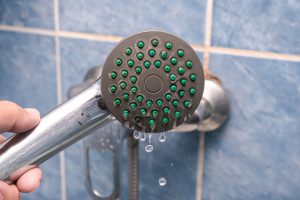Reverse Osmosis vs. Whole House Filters: What’s Better?
Understanding Phoenix’s Water Quality
Phoenix’s water supply often contains high levels of minerals and contaminants due to the desert environment. This makes choosing the right water filtration system, like reverse osmosis or whole home filtration, essential for homeowners.
Chas Roberts is here to give you a quick, easy to read, description of both systems so you can make the decision that is best for you and your family.

What is a Reverse Osmosis System?
A reverse osmosis system for home uses a semi-permeable membrane to remove impurities from water, providing clean drinking water directly from your tap.
Benefits of Reverse Osmosis Systems
These systems are effective at removing contaminants like lead, chlorine, and fluoride, ensuring safe and great-tasting water for your family.
Installation Considerations for Reverse Osmosis
Installing a reverse osmosis system for home typically involves placing the unit under the kitchen sink, requiring minimal space and maintenance.
What is a Whole House Water Filtration System?
A whole house water filtration system filters all the water entering your home, ensuring clean water for drinking, bathing, and laundry.
Advantages of Whole House Systems
These systems protect your plumbing and appliances from scale buildup and extend their lifespan by removing sediments and chemicals from the water supply.
Installation Requirements for Whole House Systems
Installing a whole house water filtration system requires access to the main water line and may need professional assistance for proper setup.
Cost Comparison of Reverse Osmosis vs. Whole House Systems
Reverse osmosis systems are generally more affordable upfront, while whole house systems have higher initial costs but offer comprehensive filtration for the entire home.
Maintenance Needs
Both systems require regular filter changes, typically every 6-12 months, whereas whole house systems may vary based on usage and water quality.
Water Usage Efficiency
Reverse osmosis systems can waste some water during the filtration process, while whole house systems are designed to minimize water waste.
Space Considerations
R/O units are compact and fit under the sink, making them ideal for smaller homes. Whole house systems require more space, often installed in garages or utility rooms.
Targeted Filtration vs. Comprehensive Coverage
Reverse osmosis systems focus on providing purified drinking water, whereas whole house systems ensure that all water sources in the home are filtered.
Impact on Skin and Hair
Whole house systems can improve skin and hair health by removing chlorine and other chemicals from shower and bath water.
Environmental Considerations
By reducing the need for bottled water, both systems contribute to environmental conservation efforts.
Customization Options
Some homeowners opt to combine both systems, using a whole house filter for general use and a reverse osmosis system for drinking water.
Local Water Regulations
Phoenix residents should be aware of local water quality reports and regulations to choose the most effective filtration system for their area.
Health Benefits
Using a reverse osmosis system for home or a whole house filter can reduce exposure to harmful contaminants, promoting overall health and well-being.
Longevity and Durability
High-quality filtration systems can last for many years with proper maintenance, providing long-term benefits for homeowners.
Choosing the Right System for Your Home
Consider factors like budget, water quality, and specific needs when deciding between a reverse osmosis system and a whole house water filtration system.
Professional Consultation
Consulting with Chas Roberts’ water treatment professionals can help you determine the best solution tailored to your home’s requirements.
Chas Roberts is Here to Help
Stay updated with our latest home maintenance tips and guides by visiting our blog regularly.
Your home is your haven, and we’re here to help you keep it running smoothly.
Read our customer testimonials and check out our newest deals and coupons to discover why Chas Roberts is the right fit for you!

